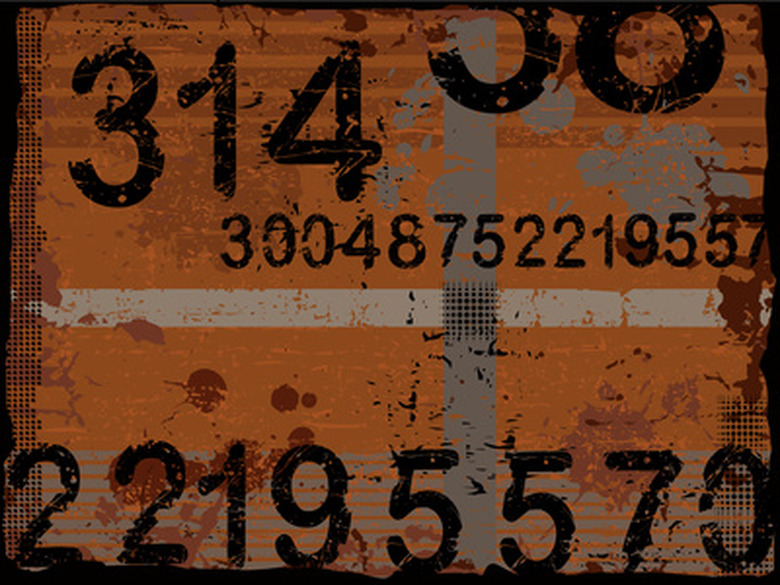How Do I Decode The Trane Model Number For A T-Series Air Conditioner?
Model numbers, to the untrained eye, can seem a little like a foreign language. Still, each letter and number means something. Usually, people don't care enough to decode model numbers, but sometimes you need to know what they mean. Trane T-Series air conditioners have model numbers that tell everything from the size of the unit to whether the system has had major upgrades. Decoding the model number takes patience, but if you focus on a few letters or numbers at a time, you'll break the code quickly.
Step 1
Look at the first number on the outside unit's model number. The model number starts with a two or four. This number represents the type of refrigerant the system uses. Two stands for R-22 and four stands for R410A.
Step 2
Notice the next three letters. T stands for Trane. The following letter represents the product type. W stands for split heat pump and T stands for split cooling. The third letter equals the product family. Z = leadership – 2 stage, X = leadership, R = replacement/retail, B = basic, A = light commercial.
Step 3
Take a look at the number in the fifth place. This is the unit's Seasonal Energy Efficiency Ratio. A single number represents the SEER: 0 = 10, 1 = 11, 2 = 12, 3 = 13, 4 = 14, 5 = 15, 6 = 16, 7 = 17, 8 = 18, 9 = 19.
Step 4
Move to position six. Zero indicates the system's connections are brazed or soldered. Positions seven and eight indicate how many BTUs the unit produces in thousands. For example: 36 = 36,000 BTUs.
Step 5
Check out position nine, which represents any type of major modifications done to the system since it was originally manufactured. Position number ten indicates the power supply voltage. 1 = 200-230/1/60 or 208-230/1/60, 3 = 200-230/3/60, 4 = 460/3/60.
Step 6
Look at position eleven, twelve and thirteen. These numbers represent any secondary function. Position fourteen stands for minor design modifications and position fifteen indicates the unit part's identifier code.
References
- Alan Boleware, Service Technician; Complete Air and Heat, Inc.; Indian Harbour Beach, Fla.
- "Trane Residential and Light Commericial Products Handbook"; Trane, Inc.; 2005
